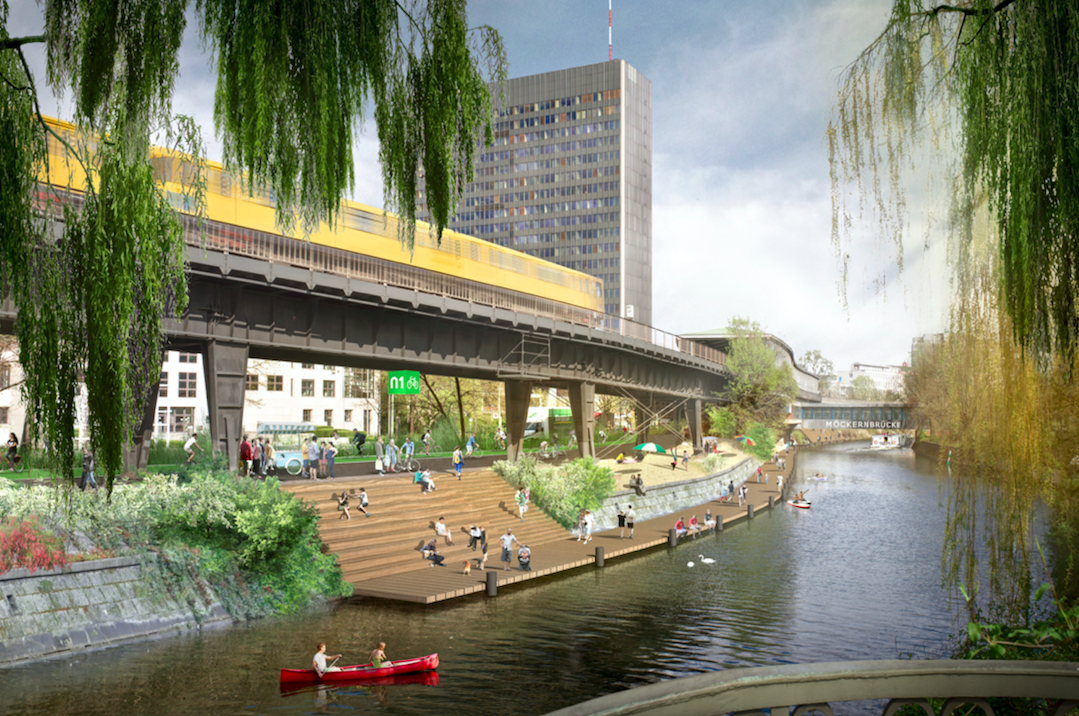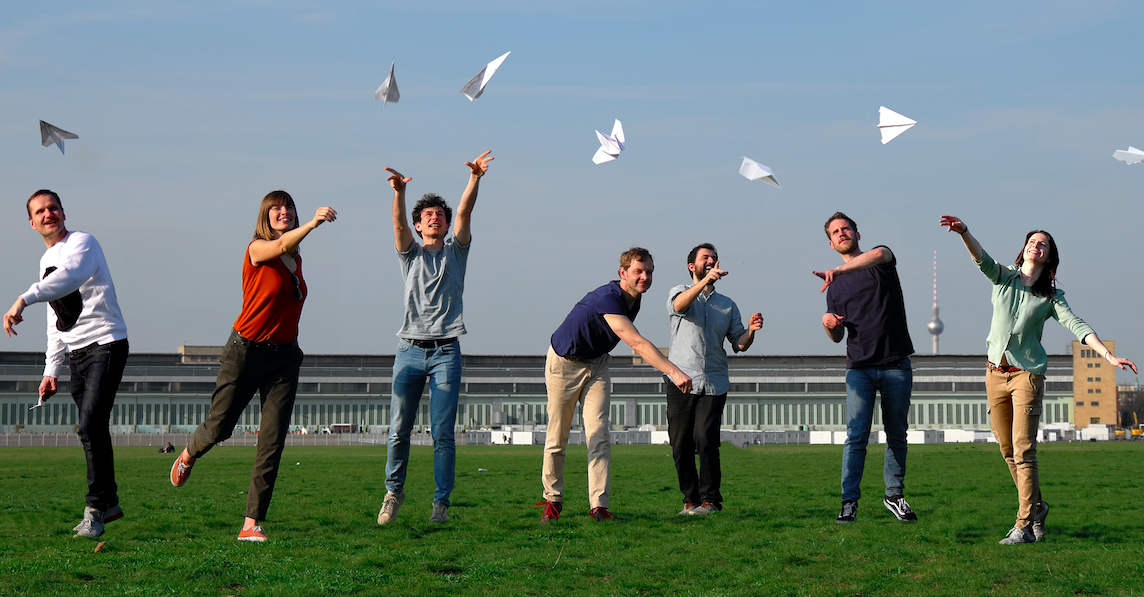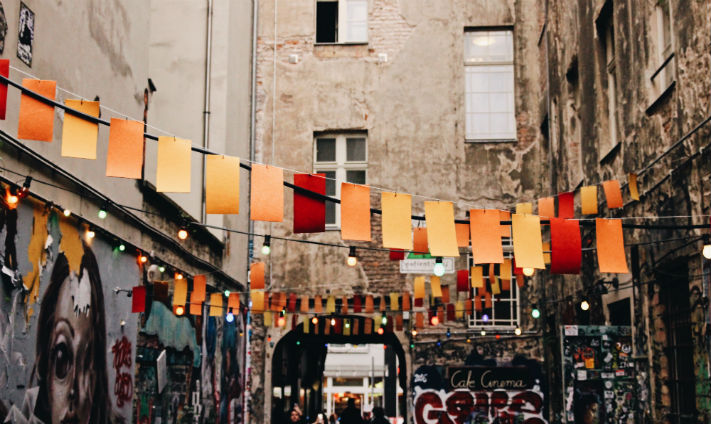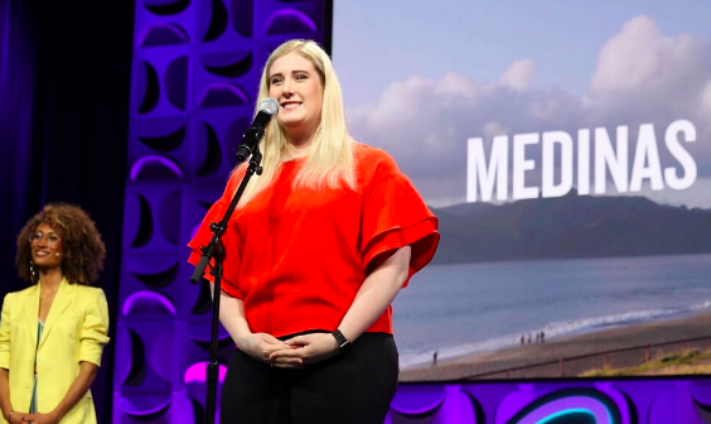Radbahn is the first project of think tank startup Paper paper planes e.V. Their mission? To transform empty space under Berlin’s metro line into creative urban areas that allow cyclists, performers, and pedestrians to use the walkway to their advantage.
It’s a big idea but one that they are tackling head-on. This is definitely a company that is not afraid to mix things up. They’re even ditching job titles and conventional leadership roles. We caught up with Perttu Ratilainen who works in strategy and communication to find out more.
Where did the idea for your company come from?
The idea for Radbahn came from a friend of ours who was also part of the team. He was cycling close to the viaduct on a rainy day and started to wonder why he couldn’t cycle under the elevated metro line because the space is mainly empty.
We decided to form our think tank paper planes e.V. because we like working together and have a pipeline of other ideas we want to work on.
What does your company do?
paper planes e.V. is a non-profit, interdisciplinary think tank focused on the promotion of more livable cities, reactivation of urban spaces, and community engagement. Our ideas are playful and open-minded.
Radbahn is our first paper plane. It converts the neglected space under Berlin’s iconic elevated metro line U1 into a 9km long shelter for bike paths. The area will also contain e-mobility hubs, a platform for innovation as well as a stage for culture, arts, and urban enjoyment.
The route spans the city of Berlin, from west to east and through three different city districts. Radbahn is a comprehensive urban transformation concept that improves the safety of cycling, provides a platform for sustainable urban innovation, and supports local artists.
It’s a landmark project in many different ways and will reduce emissions by increasing cycling.
 Why do you think your company has been successful?
Why do you think your company has been successful?
I believe we are successful because of our team, the support we are getting, and our ability to package all this into an inspiring vision of the future.
Our team is very diverse with five different nationalities. We all have different backgrounds including architects, PR professionals, urban planners, mobility researchers, and cultural managers. Everyone contributes according to their own interests and expertise.
We are an open platform. People can jump in. The amount of external support we have been getting pro-bono has been of the utmost importance to us.
Together our core team and our supporters are building and communicating a very inspiring vision for the future that excites the public, media, and politicians.
What’s been the biggest challenge?
As a non-profit, we have of course been struggling a lot with financial issues.
What advice would you give to someone considering starting their own business or applying for a job at a startup?
Get ready for an emotional rollercoaster, with ups higher than anything else and with lows that can be hard to deal with. Just like in a real rollercoaster, this all comes with an amazing thrill!
How do you measure success?
Success for me is the feeling I get when I know I have done something that benefits other people, society at large, and/or the environment. The excitement of seeing things can be improved and I have somehow contributed.
Money should never be the measurement of success. And yes, of course, we all need some to survive, but real success is something else.
 What’s your ultimate ambition?
What’s your ultimate ambition?
My personal ambition is to get better and more effective at what I am already doing i.e. working with multiple ideas simultaneously and building teams behind each idea to push them forward.
I want to play a role in making people understand the massive issues we are currently facing (climate change, destruction of biodiversity, plastic waste and so on) and come up with positive, forward-looking solutions that help people to take the right steps to address them with their own behavior.
How can companies nurture a more diverse team?
By ensuring that the people who are involved in hiring come from diverse backgrounds. White, straight, 30-years old cis-males from privileged backgrounds are probably not the best people to make hiring decisions if there is a genuine interest in diversity. It is of course equally important to ensure that diversity is embraced in the everyday work environment and company policies.
What’s the one thing you wish people knew about your business?
I wish people understood how progressive, comprehensive, and forward-looking Radbahn is. I don’t think there is another urban planning project in the world that incorporates, for example, the needs of electric mobility, small communities, and pedestrians in urban areas in the way our Radbahn does.
What does the future hold for your company?
The future will be very bright for us. Urban areas around the world are all waking up to the reality that our cities need to be built for people and not for cars. We present a very inspiring vision for the future and have solutions and tools for convincing all stakeholders of its relevance and importance.











